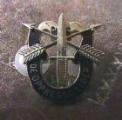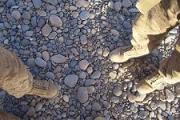In the scenario suggested, the advice proposed above would probably be quite good. It's worth noting, though, that our current insurgency issues do not derive from similar scenarios, nor does the US face any situation where we are likely to have to send combat troops to defend an allied government against insurgency.
If we want to learn the lessons we need to learn from our current engagements, we need to see them for what they are. Our COIN efforts in Iraq and Afghanistan did not derive from efforts to support an allied government against insurgency, they emerged from our belief that we could remove hostile governments and replace them with governments of our design.
I certainly don't think it's a good idea, in any but the rarest case, to send forces to defend an ally against insurgency... but that's not something we're doing, or that we look likely to do in the near future: what vital US ally now faces an existential threat from insurgency? What we need to be examining is not only how we support allies threatened by insurgency, but our misguided belief that we are capable of installing governments in places where we've seen fit to remove governments that we don't like. That's a somewhat different scenario, and one that we need to confront directly.











Bookmarks